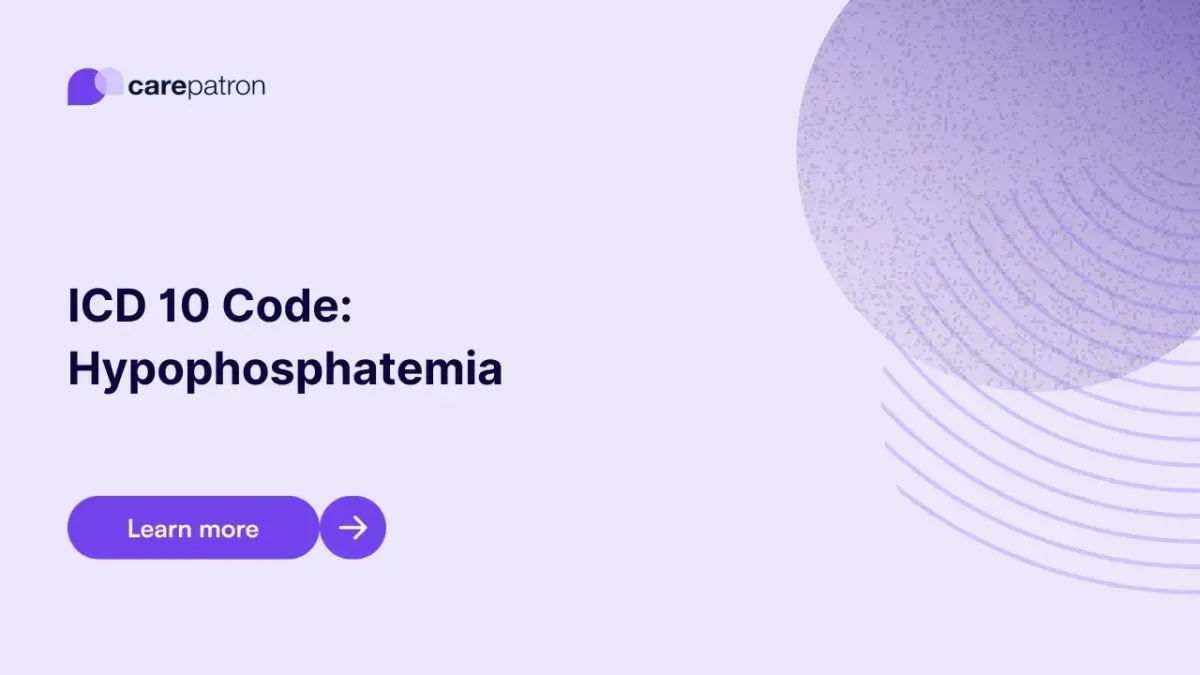
Hypophosphatemia ICD-10-CM Codes | 2025
Read this short guide to learn about Hypophosphatemia ICD codes you can use.
Use Code
Commonly asked questions
It can lead to a person developing arrhythmia and heart failure. It can also cause metabolic encephalopathy. It’s also possible for people with hypophosphatemia to lapse into a coma or die, so it’s best to get it treated as soon as possible.
They will conduct blood tests to check the bloodstream's phosphate, calcium, and Vitamin D counts. They might also perform kidney function tests, urinalysis, and imaging tests to confirm or rule out other patient problems.
It depends on the severity, but the core treatment revolves around stabilizing the phosphate count in the bloodstream. For mild cases, this can be done by consuming phosphate replacement medication, and for severe cases, phosphate replacement via IV might be suggested. Dietary changes might also be suggested.
EHR and practice management software
Get started for free
*No credit card required
Free
$0/usd
Unlimited clients
Telehealth
1GB of storage
Client portal text
Automated billing and online payments
